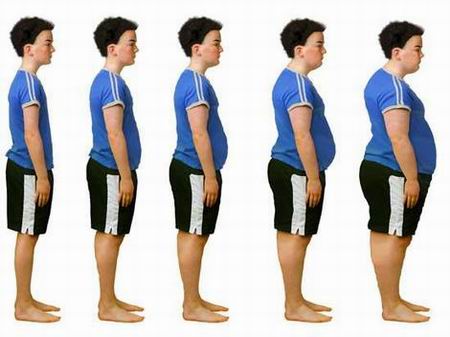Overweight Children or Optimal Health

Studies show that the number of overweight children and teens in the United States is increasing. Schools across the country are changing their thinking with the meals, snacks, and drinks they offer children in the hopes of providing them with healthier options.
With all of this talk about children and their unhealthy eating habits, both at home and at school, it’s no wonder that parents are looking for ways to get their kids to eat healthier meals and snacks. Food can do more than keep you healthy. It can also be used to heal what ails you. There’s no doubt that the right diet for you is the best prescription for optimal health and wellness.
Developing healthy eating habits at a young age can foster a healthy relationship with food that can be used to avoid various health problems such as type 2 diabetes, and also be used to enhance optimal health and ideal weight. The eating habits your children create when they are young will set the groundwork for a healthy lifestyle when they are adults.
One of the most important approaches to developing a healthy relationship with food is to teach your child the impact it has on his or her health. If you are unsure about how to select and prepare a variety of foods for your family, consult a DineWise Food Specialist for help.
Mealtime is ideally a family affair and approaches parents can take to develop healthy eating habits in their children include the following:
Teach about the health benefits and healing properties of the right food. It is important to teach that there are foods that can heal, give life and energy to a body and foods that can rob you of your birthright “health and vitality”. Processed, refined foods that have been stripped of their nutrients are best avoided.
Teach your children that whole foods full of color, fiber, and life are what give them the energy to play, the power to think, and the ability to grow into adults. As often as possible, eat meals together as a family. Mealtime should be enjoyable with conversation and sharing and not be used as a time for scolding or quarreling. If mealtimes are unpleasant, children may try to eat faster to leave the table sooner and learn to associate eating with stress and stomachaches.
Involve your children in preparing meal plans and shopping for food. Make available a wide variety of healthful foods. This will give you ideas about your children’s food preferences, provide an opportunity to teach your children about nutrition, and make available an occasion for your child to feel valued and appreciated. Have them take part in the meal preparation. Typically, children are more willing to eat or try foods that they help prepare. Encourage your children to be conscious eaters.
Teach them to chew their food thoroughly and eat slowly. Have them put their fork down every few bites to allow the stomach to “rest” before continuing. Instruct them to be aware of the tastes, temperatures, and textures of food to fully engage them in the experience. A child can detect fullness better when eating slowly.
Creating a schedule and routine for eating meals and snacks encourages healthy eating habits, keeps energy levels consistent and hunger “at bay.” Continuous grazing may lead to mindless overeating and “spoiling” a child’s appetite at mealtimes but planning to eat at specific times throughout the day is part of a balanced, nutritious plan. Eat only at the dining table. Discourage eating meals or snacks while watching television, playing on the computer, reading a book, or talking on the telephone. Eating while distracted may make it difficult to pay attention to feelings of fullness, which may lead to overeating and the entire experience of conscious eating will be overlooked.
Do not use food to punish or reward your children. Sending children to bed without any dinner may cause them to worry that they will go hungry and as a result, children may try to eat whenever they get a chance and consequently overeat. Likewise, when foods such as sweets are used as a reward, children may assume that these foods are better or more valuable than other foods. For example, telling children that they will get dessert if they eat all of their vegetables sends the wrong message about vegetables.
Never place your overweight child on a restrictive diet. The focus and control of food will only make the child put more attention to food and give them a feeling that there is “lack of” or deprivation. Instead, teach your child the principles of healthy eating so they will have the knowledge and understand of the impact that food has on their health and well-being.
Encourage your child to drink plenty of water every day. The body is made up of 60-75% water and the needs for replenishment are greater when feelings of thirst manifest, especially during times of vigorous exercise or in hotter temperatures.
Author: Debbie Judd
The MTM e-Catalog provides specific information on products, prices, packages, providers and destinations in Global Health Care – Medical Travel – Medical Tourism
